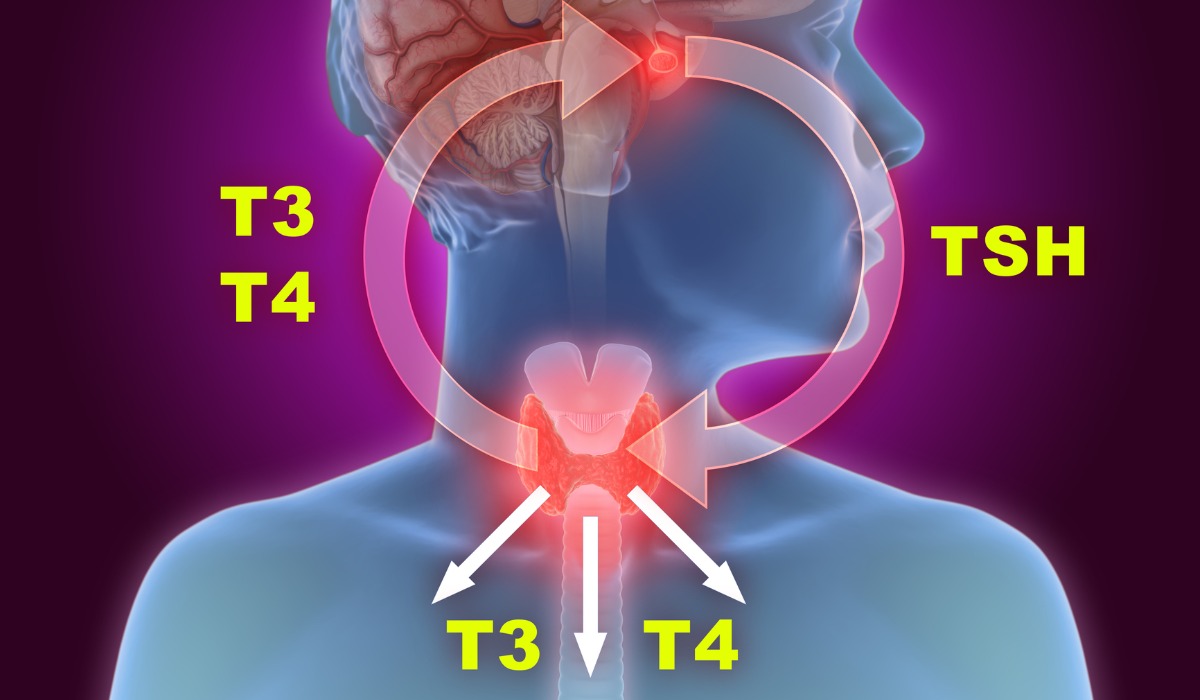At Peak Health Center, we believe traditional medical testing is incomplete when trying to get an understanding of thyroid function. This often results in the patient being put on a lifelong medication. This may come as a surprise, but TSH is not even a thyroid hormone. It is a brain hormone! The traditional medical model relies heavily on this number for a clinical thyroid diagnosis. This grossly undermines the importance of production, transportation, conversion, absorption, and destruction. These are all major areas that affect normal thyroid function. Measuring TSH, and traditional medical testing does not scratch the surface when trying to solve the thyroid puzzle.
Thyroid concerns offer a unique challenge for both patients and doctors alike. There are many symptoms associated with thyroid issues, including fatigue, weight gain, inability to control body temperature, thinning hair and brain fog, just to name a few!
With the starting point of understanding that the thyroid is at the mercy of proper adrenal function, a more detailed snapshot is necessary to assess the status of the thyroid. Functions including production, transportation, conversion, and absorption are critical to a normal functioning thyroid. The Peak Method includes a comprehensive thyroid test to get the most complete understanding of the thyroid and the ability to restore normal function.
Traditionally, when you go to your doctor with these above-mentioned symptoms, doctors are trained to run tests to check the levels of TSH (thyroid stimulating hormone) in your blood. If those levels come back high, they will more than likely put you on some form of thyroid medication like synthroid, or levothyroxine. But as we stated before, TSH is not a thyroid hormone, it is a brain hormone! TSH is released from a gland in the brain, and it tells the thyroid what to do. If we manipulate a brain hormone, that tells the thyroid what to do. What happens if the levels of TSH normalize, but the thyroid still does not do what it is supposed to? What happens all too often is that lab numbers will improve, the doctor tells the patient everything looks good with the thyroid, and the patient leaves frustrated because they still feel sick and are experiencing symptoms.
That is why at Peak Health center we take it several steps further. With every thyroid patient, we answer what we refer to as the four questions.
Question One: Is your thyroid producing enough hormone? This is where medication shines. If your thyroid is not producing enough hormones, the medication will supply the body with T4 hormone and everything will regulate. This is a viable option but only accounts for about 5% of the patients suffering with thyroid symptoms. Not to mention there are a lot of natural options that can help you achieve your goals.
Question Two: Is your body converting T4 hormone into T3 hormone? This is a very important step. You can have all the T4 (synthroid) given to you, but if you are not converting it to the active form of hormone, then it is not going to reduce your symptoms. T3 is the usable form of hormones. T3 is what makes the magic happen, and is what is going to get you back to feeling normal in many cases.
Question Three (the big one). Is there destruction happening to your thyroid? Now here is the biggest mistake made when treating the thyroid. Production and conversion are the most commonly diagnosed problems when it comes to thyroid, but these are actually not the most common problems that occur. Many times they are the result of a bigger cause. The most common is called Hashimotos. Now, even though the symptoms are the same, the cause is different. Hosimottos is an autoimmune condition of the thyroid. This means that the immune system attacks what it was made to protect.


The presence of thyroid peroxidase antibodies in your blood tells us that the cause of your thyroid disease is due to an autoimmune disorder such as Hashimoto’s disease or Graves’ disease, also known as autoimmune thyroiditis. Autoimmune disorders result when the immune system attacks your normal tissue. This is mainly due to an overproduction of antibodies in that particular area. When your body attacks the thyroid gland, the result is inflammation and impaired function of the thyroid.
It is very important to change your mindset when it comes to autoimmune thyroid conditions. This is because these by definition are not thyroid conditions. They are immune system conditions. A problem is detected in the thyroid by the immune system, maybe toxicity, a viral problem, etc, and the immune system is called in to clean it up. Now antibodies are produced. More specifically, the anti-thyroglobulin antibody is directed against thyroglobulin which is a key protein in the thyroid gland essential to the production of thyroid hormones (thyroxine or T4, and triiodothyronine or T3). Therefore, the overproduction of Anti-thyroglobulin antibodies damages the thyroid gland and affects its function. Autoimmune thyroiditis is the most common form of thyroid dysfunction, yet the only way to know if it is affecting you is by testing the antibodies – and this is where the mistake happens. It is very rare for people to be tested for this. This simple test should be run each and every time a thyroid is suspected of being the problem.
Question 4: Is there interference to the normal function of the thyroid? This is where our care shines. We look at the body as being set up as an interconnected “machine.” For example, the way our digestive system functions can result in thyroid dysfunction. Food sensitivities can affect thyroid function. Your viral load can be a direct cause of Hashimoto's thyroiditis. The nerve system can be interfered with. These are just a few of the areas that maybe need to be addressed in order to get to the root cause of your thyroid problem.
An answer to one of these questions, or a combination thereof, can be the key that unlocks the answer to your troubling symptoms!